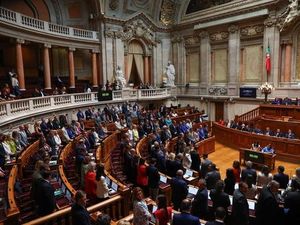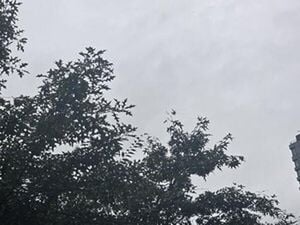China's property market has long been viewed as the backbone of its economy, but recent trends indicate significant turbulence and the potential for recovery as the government rolls out economic stimulus measures.
Among these measures, the latest news from Shanghai reveals the remarkable performance of Sunac China's One Sino Park, which sold all 158 units within three hours, generating over 5.88 billion yuan (approximately US$825.8 million). This rapid sell-out is part of what many are calling signs of renewed interest and confidence among homebuyers.
Located in the Dongjiadu area of Huangpu district, the new luxury apartments were priced at 172,000 yuan (around US$24,150) per square meter, or 40 million yuan per unit. With the high demand demonstrated—there were reportedly two buyers for every unit available—the resurgence of buyer interest is noteworthy after several years marked by stringent government regulations aimed at curbing developer debt and speculation.
Sunac, which has faced challenges largely due to industry-wide policies implemented to address over-leveraging by developers, has managed to wipe out its first two phases of sales and is now poised to reclaim its footing. After selling out previous phases of One Sino Park, the company reports total sales of 21.5 billion yuan from this development alone.
One buyer, who went by Sun, expressed his relief and satisfaction upon purchasing his new flat on the 30th floor of the complex. "Right now, it doesn’t make sense to hold on to your money; the stock market is not suitable for ‘retail players’ like us, so buying a home is probably the best option at the moment," he commented, emphasizing the shifting sentiment among buyers who are increasingly favoring property investments over other financial avenues.
This pattern of consumer behavior follows on the heels of the government's expansive stimulus package introduced late last month, aiming to bolster the real estate sector and rejuvenate the economy. According to experts, these policies have started to alleviate some of the tight-fisted behavior displayed by homebuyers who had been hesitant for years.
Meanwhile, broader economic indicators are stirring debates among economists and policymakers as industrial profits experienced a sharp decline of 27.1 percent year-on-year as of September, marking the steepest drop since March 2020 during the pandemic's early days. This record decline serves as a stark reminder of the challenges still faced by China's economic recovery.
The National Bureau of Statistics underscored this downturn when it noted manufacturing profits had dipped 3.5 percent year-on-year over the first nine months of the year, signaling the urgent need for additional policy action. Following these revelations, eyes are now turning toward the upcoming National People's Congress (NPC) Standing Committee meeting set for November, where more specific details on support measures are anticipated.
Despite the challenges, signs of resilience are evident within the technology sector, hinting at potential bright spots amid broader pressures. It's this very mix of optimism and caution—embodied by the property market rallying alongside troubling industrial signals—that frames the narrative of China's current economic situation.
Adding to the complexity of this environment, major players such as Sunac China are taking strategic measures to navigate the financial storm. By announcing plans to raise HKD 1.21 billion (approximately USD 155.70 million) through the placement of 489 million shares, equivalent to 5.6% of its existing share capital, Sunac aims to address its mounting corporate debt. This fundraising effort will primarily be channeled toward repaying onshore corporate bonds, which have faced deadline extensions until the close of 2024.
Sunac's predicament is not unique. With regulatory pressures peaking as developers grapple with excessive leverage since 2021, the entire sector has faced increased scrutiny. The company recorded a staggering half-year loss of 14.96 billion yuan (USD 2.10 billion), largely attributed to these external pressures affecting profitability.
Overall, the volatile property market is viewed through both lenses of potential recovery and persistent financial strain. While luxury units selling at double the number of interested buyers present hope for the sector's revival, industry experts remain cautious, urging careful monitoring of forthcoming economic data and government responses.
China's economic strategy remains front and center, as recovery efforts pivot heavily on the interplay between stimulating the property market and addressing industrial challenges. Investors, homebuyers, and analysts alike are watching closely to see how the narrative will evolve over the upcoming months, driven by both local market sentiment and overarching economic policy.



